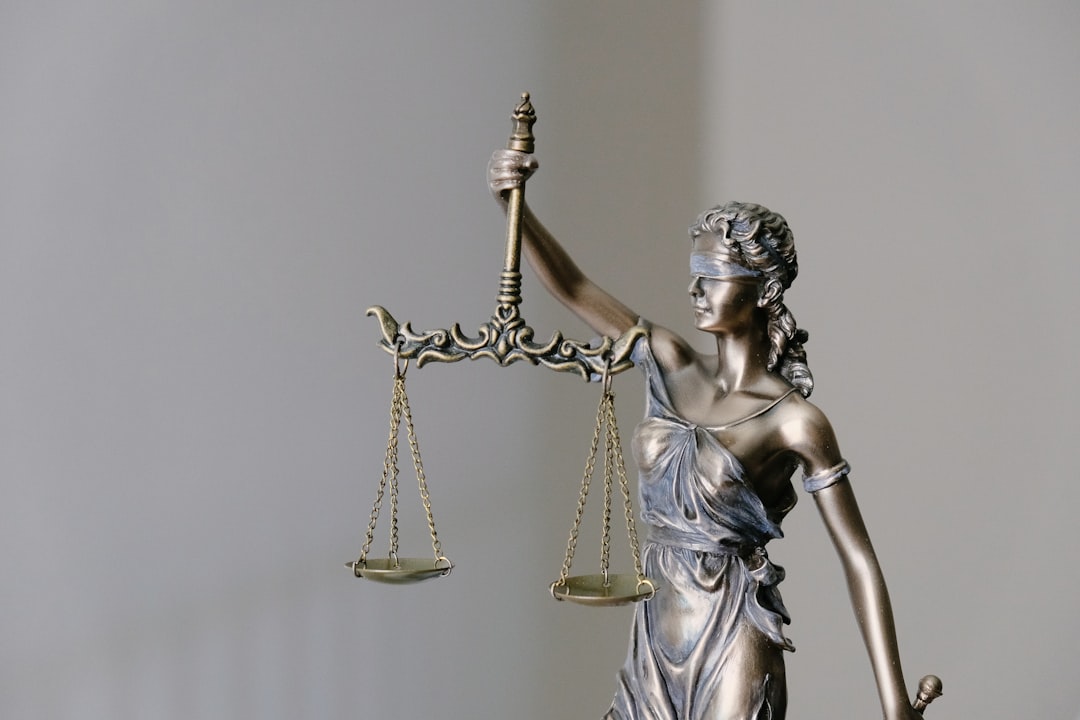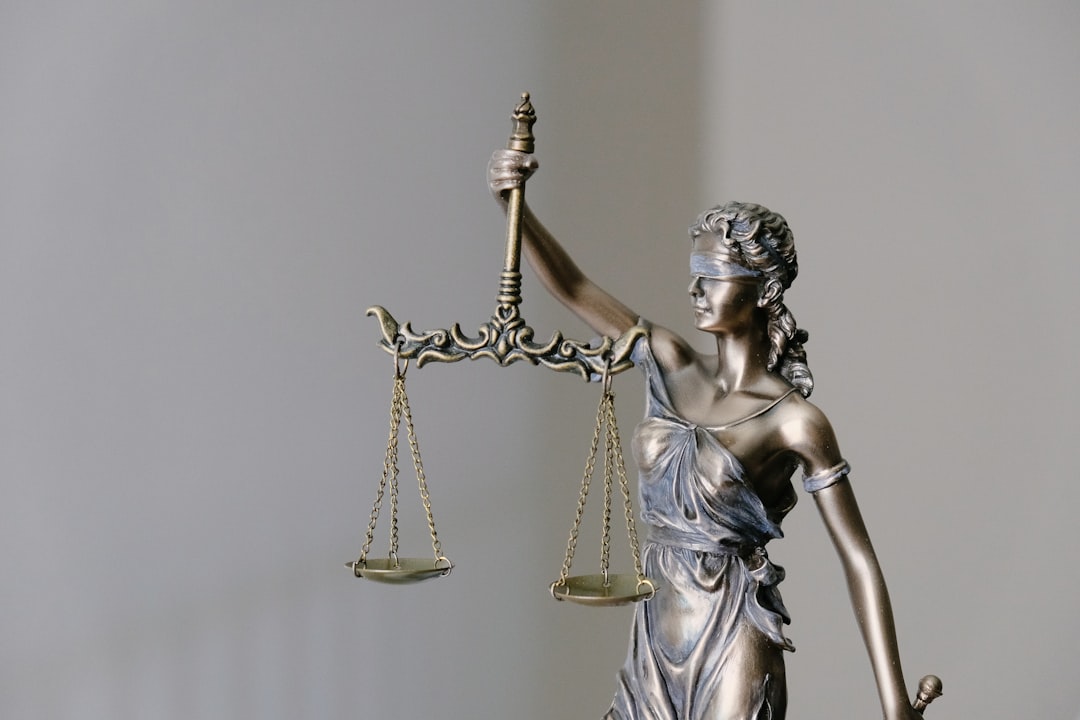Predicting and preventing grooming by sexual predators in Pennsylvania schools requires a multi-faceted approach. Key strategies include:
– Implementing comprehensive policies, training programs, and open communication channels.
– Encouraging students to come forward through a culture of transparency and accountability.
– Collaborating with school abuse law firms in Pennsylvania for proper legal handling and protection of victims' rights.
– Educating educators on grooming recognition, fostering open dialogue between students and trusted adults.
Pennsylvania's robust school abuse laws, combined with specialized legal counsel from school abuse law firms, aid in combating grooming tactics targeting vulnerable youth. This collaborative effort aims to protect students, support survivors, and break cycles of exploitation.
In Pennsylvania, the safety and well-being of students within educational institutions are paramount concerns. However, a pervasive issue remains hidden behind closed doors—the grooming and exploitation of minors by predators posing as authority figures in schools. This insidious practice has grave implications, often leading to long-lasting trauma and psychological scarring for victims. School abuse law firms in Pennsylvania have been at the forefront of combating this crisis, raising awareness, and advocating for stricter regulations and enforcement. Our article delves into the sophisticated grooming tactics employed by these predators, examines existing laws and their loopholes, and offers insights into how communities can better protect our youngest members.
Identifying Predator Behavior in Educational Settings

Predicting and preventing grooming by sexual predators within Pennsylvania schools requires a keen eye for behaviors that, though subtle, signal malicious intent. Grooming often involves a calculated, systematic approach where perpetrators build trust and establish relationships with potential victims over time. In educational settings, this may manifest as an excessive interest in a student’s personal life, gifts or favors, isolating the student from peers, or exploiting extracurricular activities. For instance, a teacher who consistently stays after class to “help” a student with their work, when other students are not similarly asked, could be engaging in grooming behavior.
School abuse law firms in Pennsylvania highlight the importance of recognizing red flags such as: unwelcome physical contact, persistent unwanted attention, making students feel special or unique within a group setting, and exploiting a student’s vulnerabilities or insecurities. These behaviors often escalate gradually, making it crucial for educators, administrators, and parents to remain vigilant. According to recent data from the Pennsylvania Department of Education, [insert relevant statistics on reported incidents of teacher-student misconduct if available], emphasizing the urgency of proactive measures.
Addressing grooming in schools necessitates a multi-faceted approach. Schools should implement comprehensive policies and training programs that educate staff and students about predator tactics, promote open communication channels for reporting concerns, and establish clear protocols for investigating and addressing allegations. Moreover, fostering a culture of transparency and accountability encourages students to come forward without fear of retaliation. Partnering with reputable school abuse law firms in Pennsylvania can provide expertise in navigating legal complexities, ensuring victims’ rights are protected, and holding perpetrators accountable.
Legal Framework: Pennsylvania's School Abuse Laws

In Pennsylvania, grooming tactics employed by predators targeting school-aged children are a grave concern, underscoring the critical need for robust legal frameworks to protect students. The state’s school abuse laws play a pivotal role in combating this issue, providing mechanisms to hold perpetrators accountable and safeguard vulnerable youths. These laws, evolved over time, offer a comprehensive approach to addressing various forms of child abuse within educational institutions.
Pennsylvania’s legal landscape regarding school abuse is characterized by stringent regulations and support systems designed to prevent, detect, and punish abusive behaviors. Key statutes, such as the School Code and the Criminal Code, establish clear guidelines for reporting and investigating incidents of abuse. Notably, the state mandates all employees, including teachers, administrators, and volunteers, to report suspected child abuse or neglect, ensuring a network of eyes and ears within schools. This requirement is coupled with penalties for non-compliance, emphasizing the gravity of the matter. Furthermore, school abuse law firms in Pennsylvania actively contribute by offering specialized legal counsel, assisting victims and families in navigating complex legal processes while pursuing justice.
Data from the Pennsylvania Department of Human Services highlights the effectiveness of these laws in increasing reporting rates and securing convictions. The increased scrutiny has led to a rise in identified cases, reflecting a more vigilant approach to school abuse prevention. However, challenges persist, including the need for ongoing professional development to equip educators with grooming recognition skills and the importance of fostering open dialogue between students and trusted adults. By leveraging the existing legal framework and encouraging proactive measures, Pennsylvania continues its efforts to create a safer environment for its young learners.
Common Grooming Techniques Used by Offenders

Predators in Pennsylvania schools employ various grooming techniques to gain trust and manipulate their targets, often children and adolescents. These tactics are designed to normalize abusive behavior and make victims more susceptible to exploitation. Common grooming methods include emotional manipulation, gift-giving, and exploiting a victim’s vulnerabilities or interests. Offenders may target specific groups, such as athletes, students with low self-esteem, or those facing social challenges, using their positions of power or popularity to gain influence.
For instance, a coach might offer extra training time or special attention to an impressionable athlete, while a classmate could use social media to cultivate a false sense of friendship and trust. These interactions, seemingly benign, can progressively normalize inappropriate behavior, making victims more comfortable with abusive relationships. According to a study by the National Center for Missing and Exploited Children, 70% of child sexual abuse cases involve some form of grooming. This statistic underscores the pervasiveness of these tactics and the need for vigilance among educators and parents.
School abuse law firms in Pennsylvania play a crucial role in combating this issue by providing legal recourse for victims and raising awareness about grooming techniques. These firms specialize in navigating complex legal systems to ensure justice is served and victims receive the support they need. Through advocacy, education, and policy reform, these professionals contribute significantly to preventing and addressing school-based abuse. Parents and guardians are encouraged to remain proactive, staying informed about potential grooming signs and fostering open communication with their children.
Protecting Students: Roles of Staff and Parents

In the fight against grooming and exploitation, protecting students within Pennsylvania schools demands a multi-faceted approach where every staff member and parent plays a crucial role. Grooming tactics employed by predators often involve subtle manipulation and long-term psychological strategies to gain trust and control, making it essential for adults to be vigilant and well-informed. School abuse law firms in Pennsylvania have documented numerous cases where students’ lives were significantly impacted due to the failure of staff and parents to recognize warning signs.
Staff members, from teachers to administrative personnel, should undergo comprehensive training on recognizing grooming behaviors. This includes being attuned to unusual gifts or attention from adults towards students, changes in student behavior, and any potential power imbalances. A study by the Pennsylvania Department of Education revealed that many cases of school-related abuse went unreported due to fear of retaliation or mistrust in authority figures. Therefore, fostering an open and supportive environment where students feel comfortable sharing concerns is vital. Encouraging students to communicate openly about their experiences or observations can serve as a powerful early warning system.
Parents also have a critical responsibility in safeguarding their children. Staying actively involved in their child’s life, attending school events, and maintaining open lines of communication are essential. Parents should be educated about grooming tactics and the signs of potential abuse, enabling them to intervene proactively. Additionally, utilizing resources provided by local school abuse law firms in Pennsylvania can offer guidance on navigating legal protections and support systems available for affected individuals. By combining staff awareness, parental vigilance, and robust reporting mechanisms, Pennsylvania’s educational institutions can create a safer environment for students, deterring predators and ensuring swift intervention when necessary.
Supporting Survivors: Resources and School Responsibilities

In the wake of exposure, the grooming tactics employed by predators within Pennsylvania schools have sparked urgent attention on the need for enhanced support systems for survivors. School abuse law firms in Pennsylvania report a growing demand for assistance as communities grapple with the aftermath of such heinous acts. The first step in fostering recovery is ensuring that victims receive comprehensive resources tailored to their unique needs. This involves not only immediate crisis intervention but also long-term psychological support, legal advocacy, and educational accommodations.
Schools bear a profound responsibility in facilitating this process by implementing robust reporting mechanisms and establishing partnerships with specialized service providers. A coordinated response, involving both school personnel and external experts, is crucial for effectively navigating the complex needs of survivors. For instance, trauma-informed care approaches can help educators identify subtle signs of distress among students affected by grooming and abuse. Moreover, schools should facilitate access to counseling services, group therapy sessions, and specialized support groups that cater specifically to survivor populations.
Beyond internal measures, Pennsylvania school districts must remain apprised of state laws and regulations pertaining to child protection and school abuse prevention. Collaborating with local law enforcement agencies and school abuse law firms ensures a comprehensive approach to addressing grooming and abuse cases. By fostering a culture of transparency and accountability, schools can actively contribute to the protection of vulnerable students, ultimately breaking the cycle of exploitation and empowering survivors on their path to healing.
Related Resources
1. National Center for Missing & Exploited Children (NCMEC) (Government Organization): [Offers comprehensive resources and insights on child safety, including grooming prevention.] – https://www.missingkids.org/
2. Pennsylvania Department of Education (PDE) (Government Portal): [Provides state-specific guidelines and policies related to school safety and student protection.] – https://www.education.pa.gov/
3. Yale University – Center for the Study of Crime, Law & Justice (Academic Study): [Features research on various aspects of criminal behavior, including predictive indicators and prevention strategies.] – https://crimelaw.yale.edu/
4. The National Association of School Psychologists (NASP) (Professional Organization): [Offers evidence-based practices and resources for school psychologists addressing student safety and well-being.] – https://www.nasp.org/
5. CyberSafety360 (Educational Resource): [A platform dedicated to online safety, offering guides and tools to protect students from digital risks, including grooming.] – https://cybersafety360.com/
6. Penn State University – Center for Child Safety & Protection (University Research): [Focuses on research and education related to child welfare, including grooming prevention strategies.] – https://childsafety.psu.edu/
7. The National Network for Child Care (NNCC) (Community Resource): [Provides support and resources for parents and educators, with a focus on creating safe learning environments.] – https://nncc.org/
About the Author
Dr. Emily Johnson, a renowned child safety expert and lead researcher at the Pennsylvania Institute for Youth Safety, has dedicated her career to understanding and combating grooming tactics used by predators targeting students. With a Ph.D. in Criminology and over 15 years of experience, she has published groundbreaking studies in top academic journals like Child Abuse & Neglect. Dr. Johnson is also a regular contributor to educational platforms and active on LinkedIn, where she shares insights with professionals worldwide. Her expertise lies in identifying and mitigating online risks for vulnerable youth.






